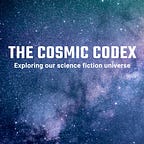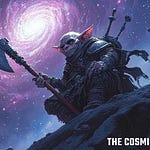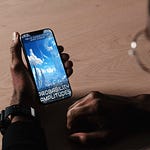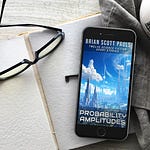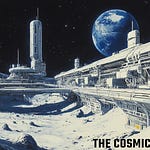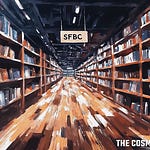Well-crafted works of science fiction are often in conversation with one another. Authors frequently respond to earlier celebrated stories—sometime challenging their assumptions, sometimes exploring new facets of their premises.
The 1973 anthology The Alien Condition includes James Tiptree, Jr.’s short story “Love Is the Plan, the Plan is Death” (free to read and listen to online at Lightspeed Magazine.) It describes the life-cycle, mating rituals, and emotional journey of a male from a vaguely insectoid, intelligent, extraterrestrial species (which appears to be coping with climate change). The story does an admirable job evoking empathy for a character very different from the reader. Tiptree here gives the lie to the conventional wisdom that, to be successful, authors must present science fiction from a human viewpoint.
Bo Balder’s piece “Love in the Season of New Dance”, the lead story in the March issue of Clarkesworld Magazine (also free to read and listen to online), appears to respond to Tiptree. Balder tells a similar tale, but chooses to include the human perspective.
Leena is a researcher, a xenology postdoc studying the mating rituals of the Amphim—an insectoid, intelligent, extraterrestrial species (who may be the survivors of climate change.) The Amphim spend most of their lives in hibernation, emerging once every 79 years for a brief mating period. Leena encounters an Amphim male who has awoken from hibernation early—a tragedy for his kind. What this will cost him, the common ground between the two characters, and how Leena responds to the Amphim’s feelings of loss, are the emotional heart of “Love in the Season of New Dance.”
Balder’s story is a riff on Tiptree’s, while still honing close to that inspiration. The natures of the aliens in the stories are similar, as are certain details of their mating cycles. But Balder introduces humans into the narrative. This is a more conservative approach than Tiptree’s bold experiment, but it’s effective. It does more, however, than just give the reader a sympathetic main character. The protagonist has personal challenges which resonate with what she learns in the encounter. Her career depends on whether she approaches her research subject as a scientist or a friend. The right choice isn’t necessarily obvious.
Recommendation: Read it!


